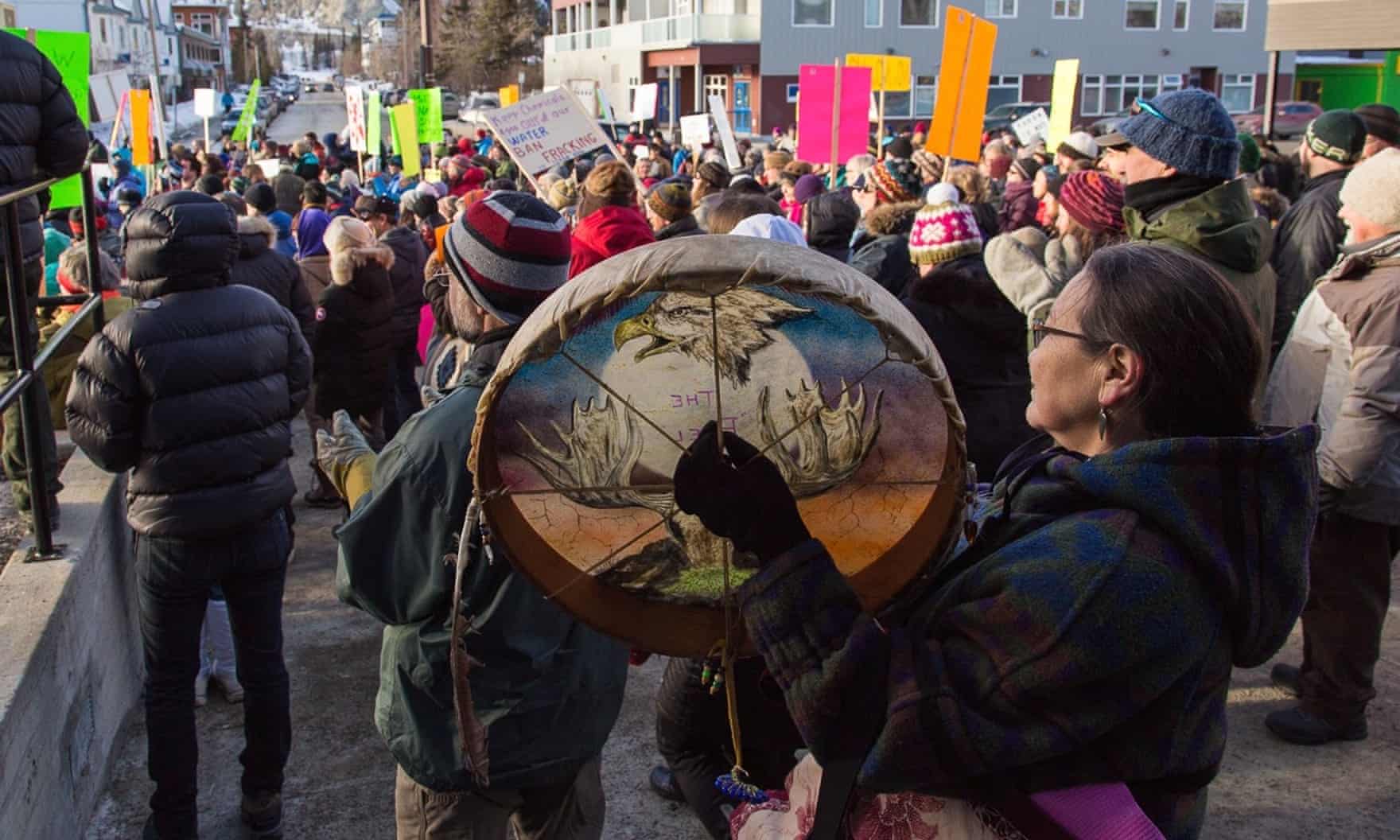
Protect the Peel
Today, March 22, World Water Day, Canada’s Supreme Court heard a case concerning the fate of the Peel River Watershed and of the three Yukon First Nations who live with the river. This case has gone through the courts for three years, but it has gone through the land for centuries. First Nation women water protectors decided enough was way too much, and they’ve organized, for the water, for their nations and communities, for the planet, and for our soul.
For Roberta Joseph, Chief of the Tr’ondëk Hwëch’in, the struggle engages betrayal and redemption: “Six rivers flow from the Yukon’s northern mountains down through boreal forest, tundra and wetlands to the Peel River, which runs north to the Arctic Ocean. Along the way, these rivers drain 68,000 square kilometres, an area larger than Nova Scotia. The Peel Watershed is intimately known by three Yukon First Nations—the Tr’ondëk Hwëch’in, the First Nation of Na-Cho Nyäk Dun, and Vuntut Gwitchin First Nation—and the Tetlit Gwich’in in the Northwest Territories, who have hunted, harvested, and lived on the land and the rivers for millennia. The parties ended up in court due to the Yukon government’s betrayal of its agreements with the three First Nations. In 1973, Yukon Chiefs presented Canada with the historic document Together Today For Our Children Tomorrow, convincing the federal government to begin negotiating a modern-day treaty with Yukon First Nations.
“Today, most Yukon First Nations have reached agreements with the Yukon and Canadian governments. The First Nations whose traditional territory includes parts of the Peel River watershed signed their Final Agreements in the 1990s. In these agreements, First Nations yielded control of much of their traditional territory in exchange for a meaningful role in land-use planning for these settlement lands and guaranteed surface and subsurface rights to smaller fractions of their traditional territory.”
In 2004, the Yukon government established a land use commission to consider the disposition of the Peel Watershed. In 2011, the commission issued its final report. According to Roberta Joseph, “The ‘Final Recommended Land Use Plan’ called for 80 per cent protection of the watershed (55 per cent permanent protection, 25 per cent interim protection), with 20 per cent open to roads and industrial development. First Nations have always called for 100 per cent protection of the watershed, but accepted this compromise. Then, the betrayal occurred.”
In July 2014, the Yukon government released its own report, without consultation with First Nations, and it called for 29 per cent protection, and leaving the remaining 71 per cent open to “development”. There are currently nearly 8000 mining claims waiting for the floodgates to open. In 2014, the Yukon First Nations joined with conservationist groups CPAWS Yukon and the Yukon Conservation Society and sued the government.
As Roberta Joseph explains, “We do not want the government to carve up the Peel Watershed with roads and industry. We do not want the government to be rewarded for betrayal with a second chance to overturn the collaborative, democratic land-use planning process. The Final Agreements are supposed to be a meaningful partnership, and the Yukon government did not honour the spirit of these agreements. That is why we appealed to the highest court in the land.”
Elaine Alexie, a Tetlit Gwich’in First Nation member, adds, “What’s most precious to us is the water. If anything should happen to that water, it will directly affect us … I spent half my childhood in the Peel. I see it as a place that I have a connection to as a Tetlit Gwich’in woman. Once a year I go up the Peel, because it’s such a part of who we are.”
Roberta Joseph agrees, “The Peel Watershed is a place where the rivers run clear, the herds of caribou are healthy, and grizzlies have the room to roam. Please visit www.protectpeel.ca to learn more about this irreplaceable landscape and how you can help support the campaign to protect it.”
Roberta Joseph
(Photo Credit 1: The Guardian / Tyler Kuhn) (Photo Credit 2: CBC News / Cheryl Kawaja)